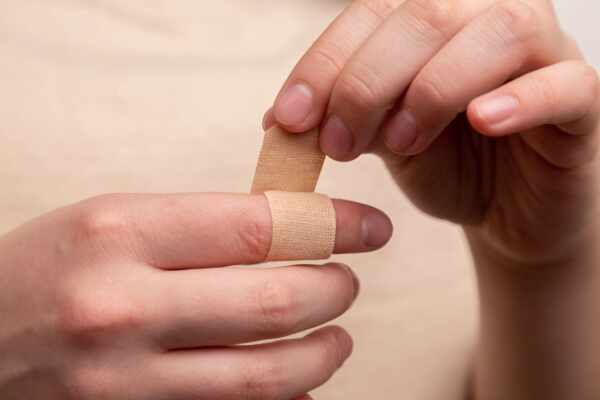According to the latest research, bad breath—or halitosis—affects one of four people in the US. Bad breath is certainly embarrassing, can affect our self esteem, and even cause anxiety and depression. However, it is more worrying that bad breath is often a sign of underlying health issues (oral or otherwise), some might be dangerous.
Thankfully, bad breath and most of its underlying causes are actually relatively easy to cure. Here, we will discuss all the ins and outs about halitosis, and especially how to treat it.
Let us begin by discussing several important facts about bad breath.
Facts About Halitosis
Bad breath, as mentioned, is pretty common and affects around 25% all around the globe, and is actually the third most common reason for people to visit Mississauga dentist—right after tooth cavity and gum disease.
While there can be various reasons causing bad breath condition, the most common cause—as probably expected— is bad oral hygiene. When food particles are left in the mouth for too long, the breakdown process by bacteria will produce the foul-smelling sulfur compound.
Plaque (a thin film consisting of bacteria) buildup is also a common cause of bad breath.
So, in most cases, maintaining a good oral hygiene practices like regular brushing (twice a day), flossing (at least once a day) and enough intake of water are usually enough to treat bad breath. However, if the condition is persistent, it is wise to visit a dentist or even a doctor to check for underlying issues.
Common Causes of Bad Breath
Below are some of the most common causes of bad breath:
- Food particles: breakdown process of food particles that are stuck in the teeth or gums can cause odors. Some, like garlic and coffee, are worse than the others. The breakdown process can produce sulfur, which is carried to the lungs that will affect your breath.
- Tobacco and coffee: tobacco and coffee cause their own type of odor. They can also stain the teeth and increase the risks of tooth decay and gum disease—which can cause bad breath—
- Fasting and low-carb diet: when our body didn’t intake enough energy from food, it will process the stored fat to produce energy. This process will produce ketones, which can be foul-smelling.
- Medications: certain medications can cause dry mouth, reducing saliva production and increase foul odors. Some others might produce chemicals that can cause bad breath.
- Disease: various mouth, nose, and throat conditions (inflammation, infection, etc.) can produce bad odor. Metabolic-related diseases from liver failure to stomach reflux (GERD) to cancer can produce specific chemicals causing foul smell.
- Bowel obstruction: relatively rare, but bowel obstruction can cause bad breath especially when there has been persistent vomiting.
- Aspiration-related conditions: infection in the lungs or airways can produce bad breath.
How To Tell If You Actually Have Bad Breath?
It is relatively difficult to objectively assess whether you actually have halitosis: first, because it can be difficult to smell our own breath, and second, because the specific odor can vary depending on the cause.
There’s also the condition we call halitophobia—or delusional halitosis—where people are worrying excessively about having bad breath, which can lead to obsessive oral hygiene practices (that sometimes can be counterproductive).
One of the best ways to find out whether you actually have bad breath is to ask someone (a close friend, spouse or a family member) that you can trust and comfortable with. Alternatively, you can lick your wrist and leave it to dry. If a bad smell persists after it’s dried up, it’s quite likely that you have halitosis.
However, it is wise to have yourself professionally examined by your dentist during a regular check up.
The dental specialist will usually simply smell the breath of the patient to determine whether the patient actually suffers from halitosis. The dentist can also use various detectors to determine the cause, as well as measure the intensity/severity, such as:
- BANA test: can measure the quantity of specific halitosis-causing enzymes produced by bacteria
- Gas chromatography: measure the level of hydrogen sulfide, dimethyl sulfide, and methyl mercaptan, all three are known cause for halitosis
- Halimeter: measure the level of volatile sulfur compounds (VSCs) in the mouth.
- Beta-galactosidase test: measure the level of the beta-galactosidase enzyme. Low level of this specific enzyme is a known cause for halitosis
Preventing Bad Breath
You can reduce the risks of halitosis by:
- Practicing proper oral hygiene:
- Brush your teeth at least twice a day. Make sure to use proper toothbrush (the right size, proper brittle condition) and fluoride toothpaste
- Floss daily
- Rinse with antiseptic or fluoride mouthwash regularly, at least twice a day
- Visit your dentist regularly, at least once every six months
- Maintain a good diet, stop smoking/chewing tobacco, limit coffee and high-sugar food and drinks consumption to avoid tooth decay
- Drink a lot of water. This will keep your mouth hydrated at all times. Alternatively, you can chew gum or sugarless candy to stimulate saliva production. Look for candies containing xylitol.
- Avoid garlic, onions, and spicy food. Also, reduce alcohol consumption.
Possible Treatment of Halitosis
In majority of the cases, fixing your bad oral hygiene practices can cure halitosis completely.
If the problem persists, however, there are two possible alternatives:
- There is an underlying cause related to your oral health. For example, tooth abscess, gum disease, or tooth cavity, among other causes. Your dentist can treat most of these causes.
- The underlying cause is not oral in nature (i.e. lung disease) your dentist might refer you to a doctor or specialist.
End Words
While bad breath or halitosis is not life-threatening by itself, it can often be downright embarrassing and cause anxiety or depression. Also, bad breath can be a symptom of more serious health issues from gum disease to oral cancer to non-oral diseases.
Maintaining good oral hygiene practices are usually enough to relieve yourself from halitosis. However, make a visit to your dentist if the problem persists, it can be a sign that you are suffering from oral or non-oral diseases as the cause.











